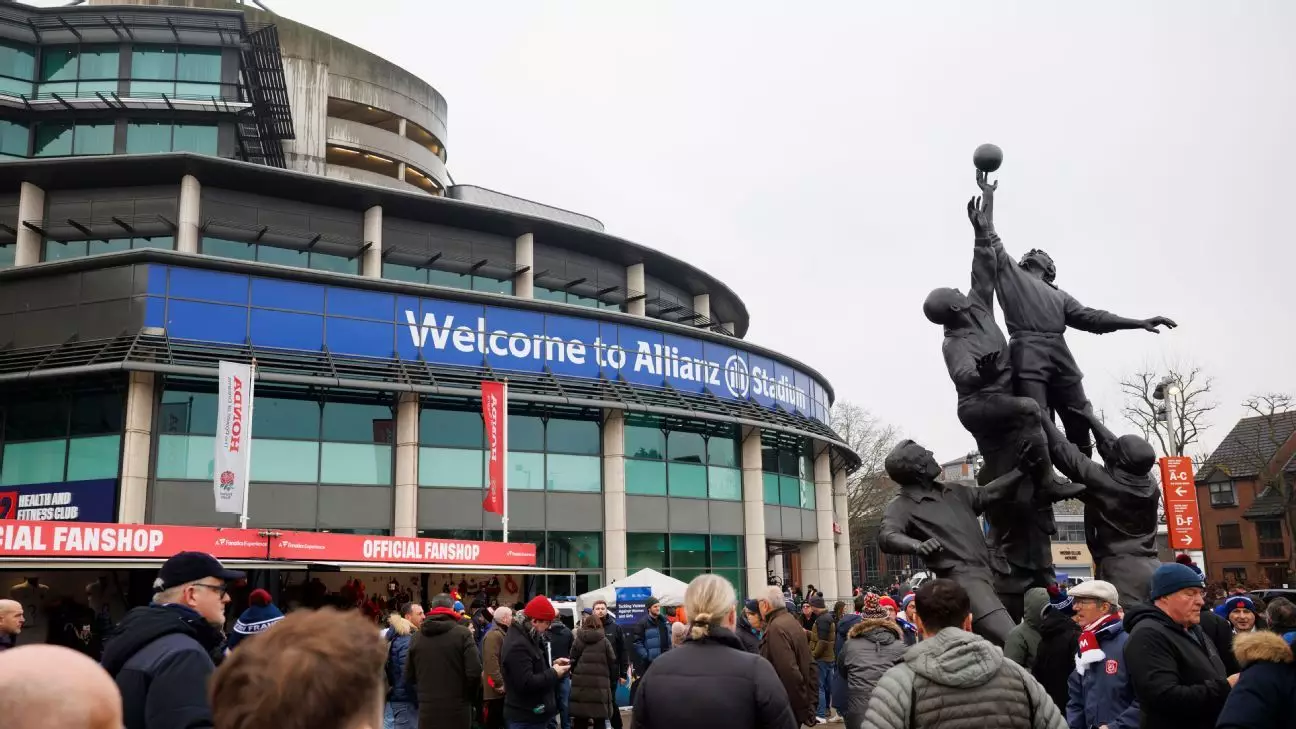The prospect of Chelsea Football Club sharing the iconic Twickenham Stadium with the Rugby Football Union (RFU) is not just an intriguing idea; it represents a potential transformation in how we think about sports venues in urban settings. With RFU CEO Bill Sweeney at the forefront, the discussion about utilizing Twickenham as a temporary home during Chelsea’s Stamford Bridge renovations signals a shift in the conventional approach to sporting venues. This collaboration, though rooted in pragmatism, could redefine how we engage with sports infrastructure, opening avenues for both clubs to benefit from this synergy.
Financial Implications and Opportunities
The financial incentives behind such a partnership cannot be underestimated. The RFU has reported a staggering financial loss in previous fiscal years, and diversifying revenue streams is crucial for its survival. Hosting Chelsea, even temporarily, could create a lucrative cash influx that might enable the RFU to stabilize its finances, invest in grassroots programs, or improve stadium facilities. However, this consideration is more than just about numbers; it’s about shared responsibility within the realm of sporting culture. By embracing sports beyond rugby, Twickenham could emerge not only as a financial lifeline for the RFU but also as a vibrant community hub where different sports coexist and interact.
The Council’s Role and Local Sentiments
However, the road to this collaborative dream is fraught with challenges. The local council will play a pivotal role in determining whether this ambitious plan comes to fruition. Richmond Council, in particular, has often positioned itself as a guardian of local sentiment, ensuring that any changes would not disrupt the lives of the residents. This sensitivity is commendable but also raises questions about the balance between community concerns and modernizing sporting facilities. It seems that navigating the complex landscape of local politics, community sentiment, and financial necessity will be the real test for the RFU and Chelsea.
Expansion of Events: A Cultural Shift
Changing the existing RFU regulations could also pave the way for a broader range of events at Twickenham. Currently limited to three non-rugby events a year, expanding this could enhance Twickenham’s role in the community beyond just rugby matches. Imagine the stadium hosting concerts, community events, or even various other sports—melding diverse cultural experiences within its iconic walls. This evolution could foster a sense of inclusivity among fans of different sports, helping Twickenham to thrive as a multi-functional venue while also boosting local tourism and economy.
The Future of Sports Facilities
The broader implications of this potential partnership may redefine how sports facilities are viewed and utilized in the future. As cities grow and the demand for diverse sporting experiences rises, the idea of multi-purpose venues may become the norm rather than the exception. Twickenham, if successfully transformed into a shared space, could serve as a progressive model for how sports organizations collaborate, turning competition into cooperation.
The ambition to share Twickenham Stadium offers an intriguing glimpse into a possibly more collaborative future for sports venues—one that prioritizes community needs while also addressing economic realities. As discussions progress, the focus should be on finding a balance that serves both the RFU’s financial goals and the residents’ sentiments.


Leave a Reply